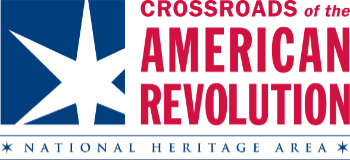Biography People
Dr. Nicholas de Belleville Full Biography
I was born in 1753 in Metz, France. From a young age I studied medicine, guided by my father who was surgeon at the Metz military hospital. I then studied for seven years in Paris, earning testimonials of respect and esteem from my professors. In Paris, I met Polish Count Casimir Pulaski, then in Paris to offer his services to the American struggle for independence and I became his personal physician. We boarded a ship at Nantes on June 9, 1777 and arrived in Salem, Massachusetts on July 22 after a voyage during which I “was so d—d sick, that I prayed that we might all go to the bottom together.” Among the ship’s cargo were 1600 muskets being sent by France to the American troops fighting for independence. At Valley Forge I was commissioned a surgeon in the Continental army by Surgeon General Dr. William Shippen.
In the winter of 1778, I went with the Count to Trenton, New Jersey where his cavalry brigade had been assigned winter quarters while the Continental Army was wintering at Valley Forge. I quartered with Dr. William Bryant (at what is today known as the William Trent House) who was the town’s most prominent physician, although considered to be a Loyalist because he refused to swear loyalty to the revolutionary government and give up his pension as a retired British army doctor. In Trenton, I walked each morning to the stone military barracks which served as a Continental Army hospital. I enjoyed my time in Trenton, even though the citizens were very unhappy about having to accommodate Pulaski’s cavalry, because the town was already crowded and short of food for man and horse. During my military service I became acquainted with General Washington and for the rest of my life I spoke highly of his character on many occasions.
Pulaski was ordered south in the spring and Dr. Bryant unsuccessfully urged me to stay behind and practice medicine with him. While in the south, I received an urgent message from Dr. Bryant requesting me to return to Trenton to practice medicine because he was near the end of his career. The Count graciously allowed me to leave the army and return to Trenton in the fall of 1778, where I resided for a time at the tavern of Mrs. Charity Brittain. On January 10, 1780 I married her daughter, Ann. We had two daughters.
Throughout my life I had a relish for books and acquired a very large collection. Many young doctors from different parts of the country came to work and train with me and I was often consulted by some of the most eminent physicians of America and I enjoyed their friendship. In 1809, I became a member of the Medical Society of New Jersey and I soon became an examiner for candidates seeking to be doctors. In 1815, I was elected Vice President of the Society and continued to be active until very late in my life. I was known to be “cautious and minute in investigating – keen in observing – careful and deliberate in deciding – accurate in judgment – prompt and efficient in the administration of remedies – candid and conscientious in advising – kind and soothing in deportment.” I considered people’s confidence in me to be a sacred trust.
I became known for sound advice, such as, “When you are called to a sick man, be sure you know what the matter is – if you do not know, nature can do a great deal better than you can guess.” In every way I wanted to improve the quality of doctors because, “If you have a lawsuit, you get one bad lawyer, you lose your suit – you can appeal; but if you have one bad doctor, and he kills you, then there can be no appeal.” I did not necessarily like lawyers anyway, and one time when I encountered several of them voraciously eating and drinking between court appearances, one of them who knew my consistently careful habits of life, called me the “lean Frenchman” and said he was surprised I was still alive. I told him, “I will live to stamp on the graves of every single one of your d—d set.” And, actually I did outlive those gluttonous men.
As I got older I tried to retire, but some of the families I had treated so long begged me to continue seeing them and I did. In December 1831, I was 79 years old and suffering from the flu and knew my end was near. The evening of the 17th, my nurse took my candle and was about the leave the room when I said to her sternly, “Put that candle down! You don’t wish to let me die in the dark, do you?” She went to get another candle and returned only to find I had died.
FURTHER SOURCES
Wykes, Stephen. History of Medicine in New Jersey, and of its Medical Men. Newark: Martin R. Dennis & Co, 1879.
His long obituary is in the Emporium and True American (Trenton), Saturday, December 24, 1831, page 3.
